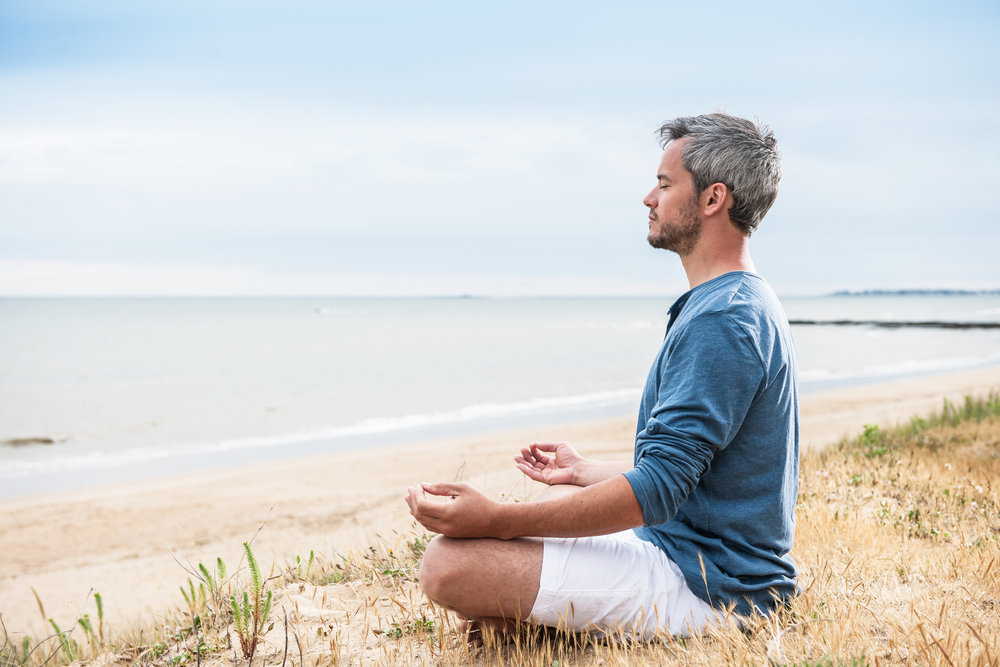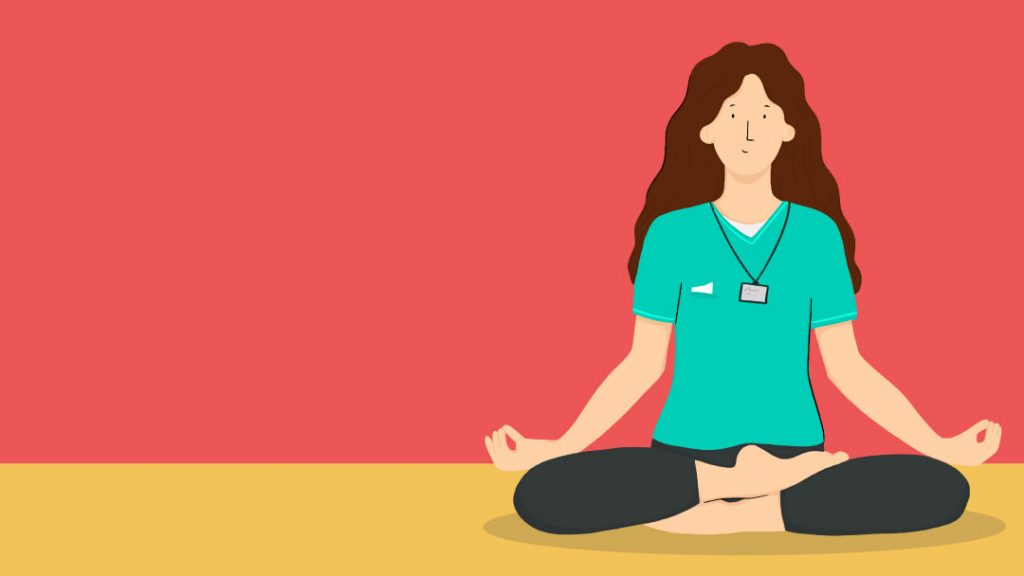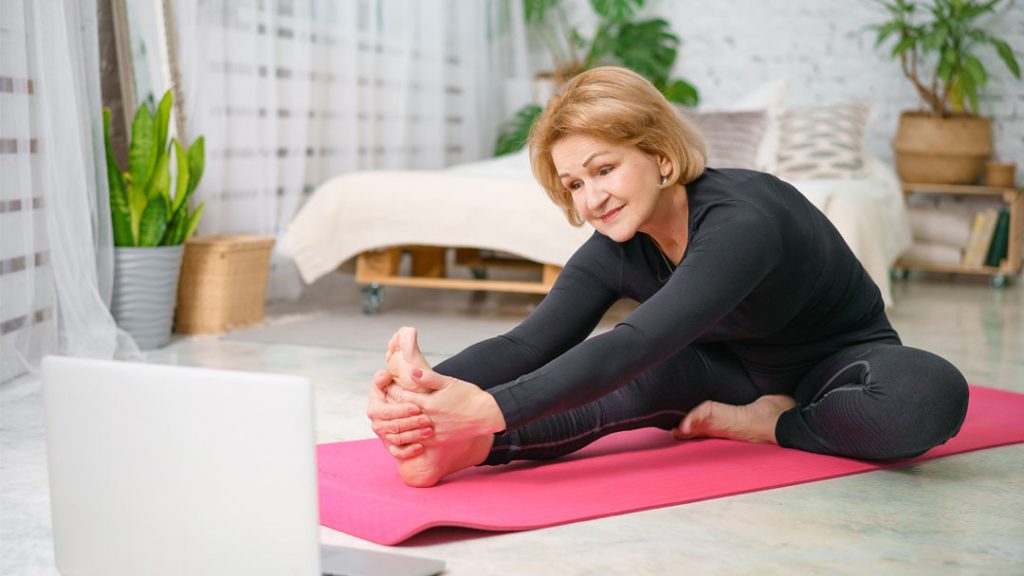A change is as good as a rest but when that’s not possible there’s the inner rest of meditation. Here’s our top 5 free meditations for the top 5 problems for carers.
Meditation offers a simple and free way to replenish your energy so that you can give the best to your day.
It involves no special equipment or clothing. With an abundance of free online meditations to choose from it’s never been easier.
So many so in fact that we’ve come up with the ultimate meditation list for Carers. We’re here to help with:
- anxiety
- controlling anger
- sleep
- living in the moment
- emotional healing
- self-care and happiness
Anxiety
[bctt tweet=”We suffer from anxiety when we perceive a threat and become unable to manage our emotional response.” username=”discountsforcarers”]
It has been often observed that meditation can relieve anxiety. A recent study has now backed up this long-held effect of experience.
Scientists have identified the areas of the brain and the mechanisms involved during meditation that reduce anxiety.
Meditation, therefore, can be enjoyed as a secular activity or a spiritual practice.
It reduces anxiety in a number of ways:
- interrupting the pattern of anxiety within the brain
- increasing serotonin (the neurotransmitter crucial to happiness)
- reducing the stress hormone cortisol
- mindfulness meditation has been found to change the structure and function of the brain
Insight Timer and You Tube is full of guided meditations on the theme of overcoming anxiety.
Try yoga master Adriene’s Meditation for Anxiety lesson below:
Depression
Effective and established treatments for depression include anti-depressants and Cognitive Behaviour Therapy (CBT).
However, recent research breakthroughs into the effects of meditation on depression have echoed the positive feedback of seasoned meditators.
[bctt tweet=”Research from Johns Hopkins University has found that depression and anxiety may be reduced through the simple practice of sitting in meditation.” username=”discountsforcarers”]
Other research by Goyal has indicated that a daily mindfulness-based meditation is effective in reducing the symptoms of both anxiety and depression.
It stands to reason that a combination of self and healthcare treatments – that suit you – will be effective in supporting your wellbeing and your quality of life.
Try this simple mindfulness meditation from The Enthusiastic Buddhist Mindah-Lee Kumar.
It will help you relax and bring clarity to your busy mind.
The two breathing exercises shown here are commonly taught to beginners who wish to learn meditation as a tool for increasing mindfulness.
The practice of mindfulness has become popular in businesses and schools regardless of belief.
This technique of focusing on the breath can be practised by everyone for a positive experience of the mind and body.
Controlling anger
Meditation can also be good for regulating and overcoming anger.
The most common sources of anger reported by carers include:
- taking on the role of carer
- being overtired and stressed
- conflicting priorities and frustration
- loneliness
- having no one to talk to about how you feel
The stress generated from the practical and emotional pressure when prioritising someone else often leads to overwhelm.
When we can’t immediately change our circumstances the best way to find a way forward is to change how we feel.
Easier said than done right?
[bctt tweet=”Meditation will contribute to emotional self-care and the best part is that you won’t have to think at all.” username=”discountsforcarers”]
You just need to close your eyes, relax and breathe.
Studies have shown that 20 minutes of meditation (even in someone that’s never meditated before) produces a calmer physical response to the original source of anger.
One common piece of advice for releasing anger is to walk it off.
Why not combine meditation and walking with this mindfulness practice?
A walking meditation is also an excellent option for those experiencing discomfort when sitting in meditation.
It is reported to increase our concentration levels in those feeling agitated.
Walk it off with this exercise from The Enthusiastic Buddhist Mindah-Lee Kumar.
Sleep
[bctt tweet=”One of the things we hear most often is that Carer’s can’t sleep. Once asleep they don’t get enough of it.” username=”discountsforcarers”]
We’ve found two meditative solutions to transform your rest.
There is nothing worse than being tired but not being able to sleep.
Meditation can be a very effective practice on waking to set you up for the day.
However, a good guided meditation can get you off to sleep before you know it. Sometimes you’ll fall asleep without hearing the end of the session.
Put your focus off stress and on the different inner narrative of guided meditation.
There are so many free meditations out there for a good night’s sleep.
Start off your recommended 8 hours per night with this free breathing into sleep meditation by Bethany Auriel-Hagan on the Insight Timer app.
Sleep Quality
8 hours of low quality sleep isn’t as effective as 6 hours high quality sleep.
If you’re stuck in a cycle of late nights this is good news.
However, you must ensure the conditions are right for good sleep quality.
It’s all about preparation and changing your habits in the hours before bedtime.
[bctt tweet=”Limit your use of electronics a couple of hours before you’re likely to go to sleep. The back light is known to limit REM sleep as it disrupts the production of Melatonin.” username=”discountsforcarers”]
So even if you are getting the recommended 8 hours of sleep you could wake up feeling dazed and tired throughout the day.
Creating the right conditions for sleep is the key to improving sleep quality.
That means having a clean, comfortable space that’s at the right temperature.
If you have the time, try a bath before bed, some Chamomile tea and time away from the screen.
A great way to start the day after an optimum (or even not so great) sleep is some gentle morning yoga in bed.
Here’s one of many great yoga routines from Tara Stiles.
Enjoy!
What supports your self-care? What are your biggest challenges as a carer? Get in touch. We’d love to hear from you.




